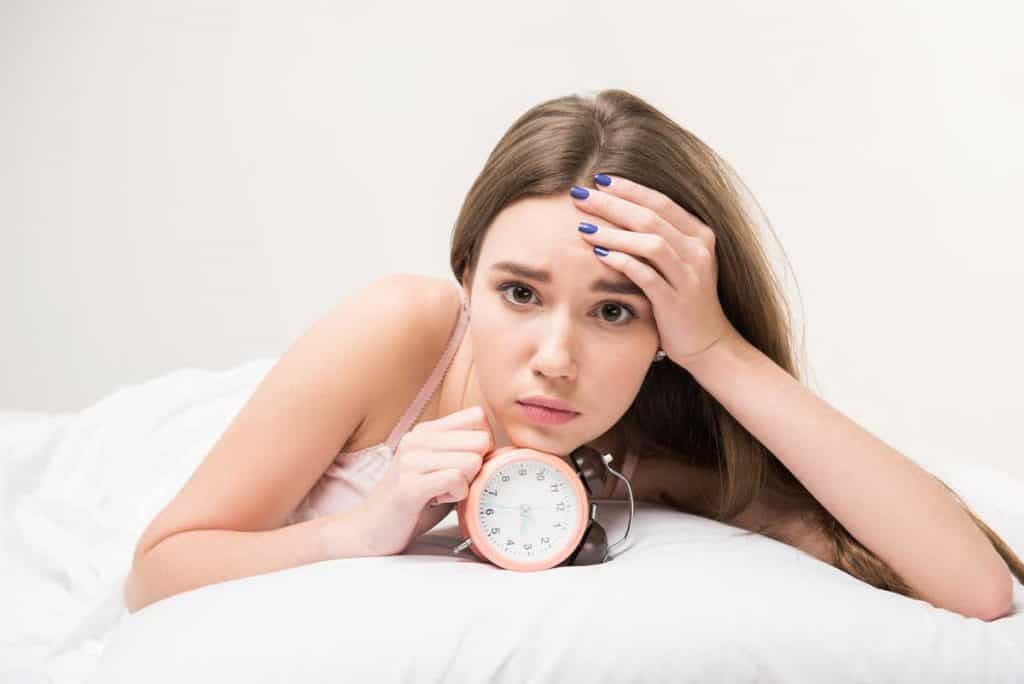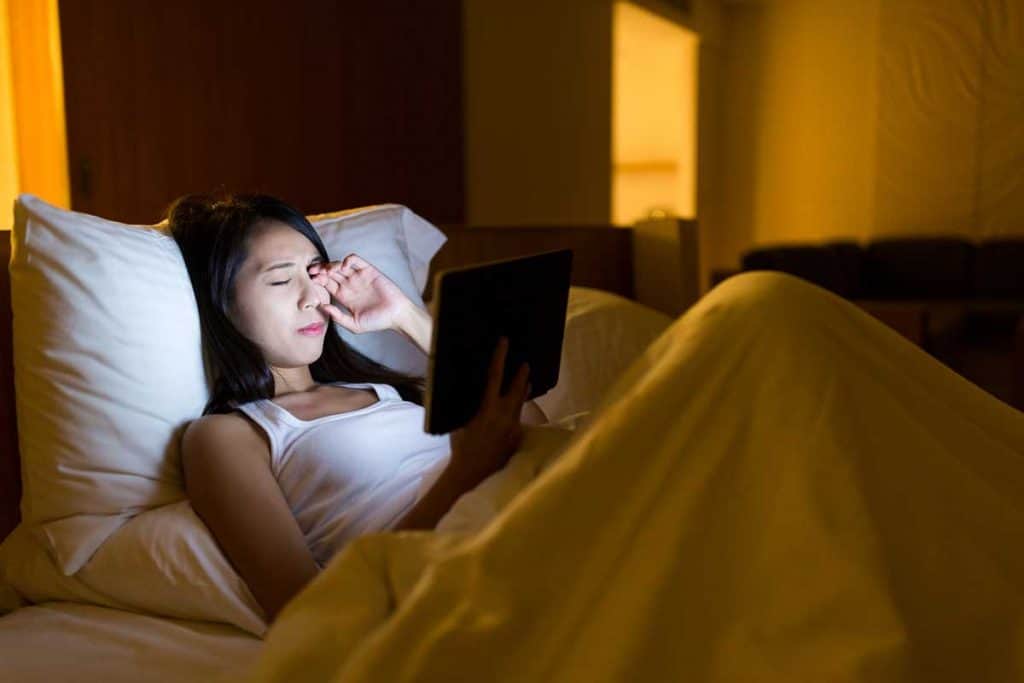
If you’re looking for tips to sleep better and beat insomnia, here are tried and tested ways to get that sweet slumber.
Can’t sleep? You’re not alone. According to Health Engine Australia, 90 percent of the population is suffering from a certain sleep disorder. Thirty percent of these individuals are experiencing severe sleeping conditions such as obstructive sleep apnea, narcolepsy, restless leg syndrome, and more.
Meanwhile, five percent of affected individuals are experiencing chronic insomnia due to medical conditions. While psychological conditions can be changed, it’s a hard habit to break and beat insomnia.

10 ways to beat insomnia
Keep a regular sleep-wake cycle
It’s tempting to sleep at any time of the day, especially when you feel tired. But if you’re having sleep problems, stick to a regular bedtime sleep-wake schedule to regulate your body clock. It helps to keep an alarm clock to wake you up.
Establish a nighttime routine
People who suffer from stress and anxiety will find it beneficial to instill relaxing activities at night. You can wind down and take a warm bath, read a book, or write a journal to take off heavy feelings. Try meditating for at least five minutes. It can help boost your mind and sleep quality.
Change your sleep environment
If you turn the lights dimmer lower the AC on, you help put yourself into sleep mode by inducing melatonin with these methods. Melatonin is a hormone that regulates our sleep cycles. Beat insomnia by adjusting our sleep environment – our minds can be tricked into sleeping faster and better at night.
Put away your gadgets
We’re all guilty of spending an hour on our phones, TVs, or computers. Whether that’d be for Netflix, social media, or watching funny animal videos, we just can’t help steal a glance from our gadgets. But if you want to beat insomnia and sleep well at night, you need to put down your gadgets. That’s because it emits blue lights that can keep you awake at night.
Exercise regularly
Exercise can help regulate your body clock throughout the day. It can make you feel energized in the morning and normalize your sleeping hours at night. However, don’t try to work out close to your bedtime. It can bring on your adrenaline which keeps you awake at night.
Limit your naps to 20 minutes
Naps are a great way to catch on sleep debt, but it can throw off your regular sleeping patterns. If you must get some shuteye, make sure to limit it to 20 minutes tops. Lest you’ll find yourself lying awake at night. Taking naps late afternoons can also induce insomnia at night.
Limit eating and drinking at least two hours before bedtime
Eating late dinner or drinking near bedtime can cause your digestive system to become active at night. Eating too much food can lead to acid reflux while drinking too much water might result in nocturia. Both can disturb you on your sleep.
Reduce stress
Anxiety and depression can often lead to restless nights and make it harder to beat insomnia. Try relaxation therapies or meditation to ease the mind and body of stress. You can try deep breathing exercises or listen to peaceful music.
Eliminate alcohol and caffeine four hours before sleeping
Alcohol might make you feel sleepy at first, but it’ll jolt you awake in the wee hours of the morning. Meanwhile, caffeine will not only delay sleep but will cause awakenings up to 24 hours.
Invest in quality pillows, bedding, and mattresses
Perhaps your bed is causing you insomnias. Invest in beddings that satisfy your needs. Remember, when choosing pillows or mattresses, you have to think about:
- Sleeping position
- Existing medical condition
- Material type
- Preference
- Features

What is insomnia? Can we beat it
Do you find yourself struggling sleep at night no matter how hard you tried? Have you woken up in the dead of the night and lie awake for several to go back to sleep? That’s insomnia.
It is the incapability of falling or staying asleep during bedtime. It’s a common problem that affects millions of Australians. It can make you feel tired, irritable, and even more depressed. Chronic insomnia might affect only five percent of the population, but it’s a grave matter that affects health in the long run.
Did you know insomnia is never about the number of hours you sleep? It’s all about how difficult it is to sleep and is affecting your mood and condition the next day. People who can sleep seven to eight hours and still feel fatigued may be experiencing insomnia.
Insomnia is not just a disorder. It can be a symptom of an underlying disease.
Common symptoms of insomnia:
- Tired but having difficulty in sleeping
- Grueling sleep
- Waking up frequently and hard time going back to sleep
- Lethargic
- Waking up in the early hours of the morning

Causes of insomnia
Insomnia often comes and goes, lasting about a few days. If it’s persistent, you might be experiencing chronic insomnia. The condition is caused by a lot of factors such as:
Food and drinks
There are certain foods and drinks that can promote insomnia such as spicy foods, caffeine and alcohol, chocolate, and more. Especially when it’s too close to bedtime, it can induce insomnia. Some foods can build acid reflux. Even water can make you get up once in a while to pee.
Lifestyle and habits
Your lifestyle and habits can be affecting your sleep. For instance, diet, as mentioned above, can throw off your body clock. Others:
- Lack of exercise and daylight exposure. Exercise and a walk under the sun can reset your body clock and improve your circadian rhythm. It helps you feel invigorated to tackle the day’s work until you wind down in the evenings.
- Graveyard shift work. Working at night can increase insomnia in the long run. It will be hard for the body to retune its normal sleeping hours once you break off the cycle.
- Excessive daytime napping. While you can take a nap during the day to makeshift your sleep debt, snoozing for more than 20 minutes can increase the delay in nighttime rest. Keep your naps under 20 minutes and end it before 2PM.
- Use of technology. Scrolling your newsfeed at night can have detrimental effects on your sleep routine. The blue light emitting from your gadgets makes you more awake, thus delaying sleep.
- Cluttered bedroom. A cluttered bedroom brings a cluttered mind. Your bedroom and anything in it might be responsible for your lack of sleep. Change your sleep environment to help you doze off at night.
Medications
Prescription drugs like antidepressants and corticosteroids stimulants can induce insomnia. Since it helps the body beat depression, swelling, and soreness, it raises your adrenaline rush a little higher as an effect to feeling better from the pain. Meanwhile, slimming and pregnancy pills can make you alert at night because of the jitters and side effects it gives off.
Stress, anxiety, and depression / Psychological problems
Psychological problems, even cognitive decline, can lead to sleep delay. Restless thoughts can keep you awake at night and further intensify your irritability and aggression the next day. Neurological conditions like dementia and Alzheimer’s lets patients “sundown” before the evening arrives.
Physical pain
People suffering from backaches, arthritis, or muscle spasms, will jolt up at the soreness and severity of the condition. It’ll be harder for them to sleep again due to the intensity of what they’re feeling.
Insomnia affects us all and it’s up to you to change your daily habits and lifestyle to curb your sleep loss. If you’ve tried different to sleep better and beat insomnia to no avail, contact your doctor for a diagnosis. Chronic insomnia will take a heavy toll on your health.
Remember our tips to sleep better at night!



